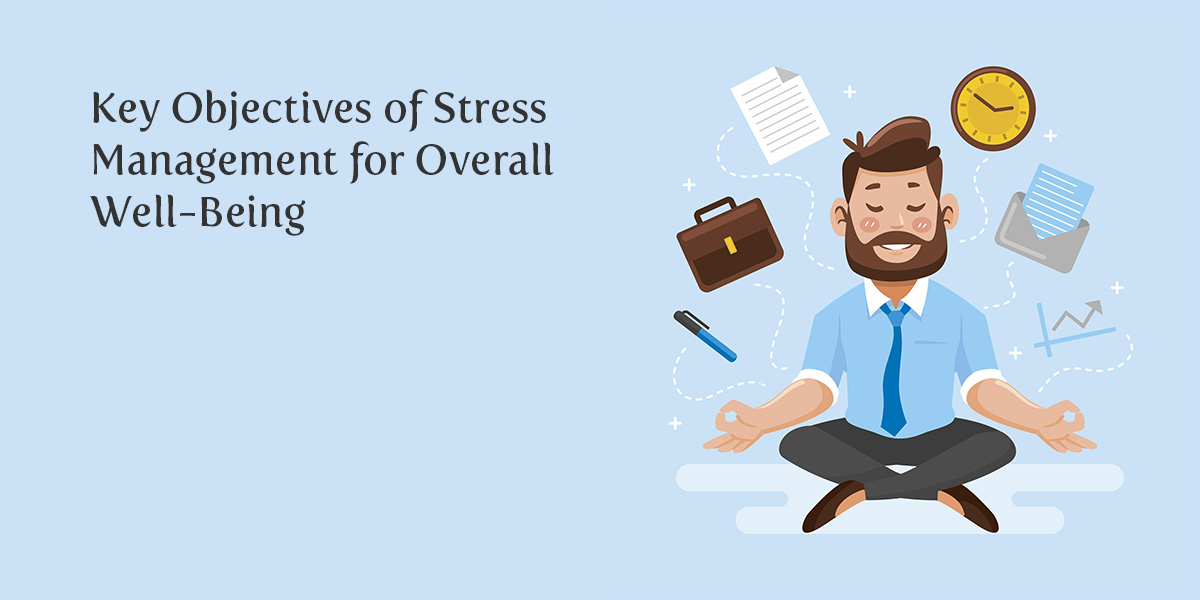What Is Stress?
In today’s fast-paced and demanding world, stress has become an all too familiar companion for many. Stress is the body’s natural response to various challenges, both physical and emotional. It is the feeling of being under pressure or overwhelmed due to factors like work, relationships, financial issues, or health concerns. While stress can be a motivator in some situations, chronic and excessive stress can have detrimental effects on our physical and mental well-being.
Stress triggers the release of hormones like cortisol and adrenaline, preparing the body for a “fight or flight” response. This evolutionary mechanism served us well in ancient times, but in modern life, constant activation of the stress response can take a toll on our health.
What Are The Effects Of Stress On Physical And Mental Health?
Stress, if not managed effectively, can have significant consequences on both physical and mental health. Some of the effects of chronic stress include:
- Increased risk of heart disease and hypertension
- Weakened immune system, making individuals more susceptible to illnesses
- Digestive issues like irritable bowel syndrome (IBS) and acid reflux
- Sleep disturbances, leading to insomnia and fatigue
- Emotional symptoms such as anxiety, depression, and mood swings
- Difficulty concentrating and making decisions
- Relationship problems and social withdrawal
In extreme cases, chronic stress can contribute to burnout and other mental health disorders.
How Can Stress Management Improve Overall Well-Being?
The good news is that stress management techniques can significantly improve overall well-being. By adopting effective strategies to cope with stress, individuals can mitigate its harmful effects and experience a better quality of life. Some ways stress management can help include:
- Reducing the risk of stress-related health issues
- Enhancing emotional resilience and coping abilities
- Improving concentration, productivity, and decision-making skills
- Strengthening personal relationships and social support systems
- Promoting better sleep and higher energy levels
- Boosting overall mental and emotional well-being
Key Objectives Of Stress Management
Identifying Stress Triggers: Recognizing the specific stressors in one’s life is the first step towards effective stress management. It involves self-awareness and understanding the situations or factors that cause stress.
- Implementing Relaxation Techniques: Incorporating relaxation practices like deep breathing, meditation, yoga, or mindfulness can calm the mind and reduce the physiological effects of stress.
- Time Management: Efficiently managing time and priorities helps in reducing feelings of overwhelm and promotes a sense of control over one’s life.
- Setting Boundaries: Learning to say no and setting healthy boundaries in personal and professional relationships prevents excessive stress due to over commitment.
- Healthy Lifestyle Choices: Engaging in regular physical activity, maintaining a balanced diet, and getting enough sleep contribute to better stress management and overall well-being.
- Seeking Support: Talking to friends, family, or a mental health professional can provide valuable support during stressful times.
How To Achieve The Key Objectives Of Stress Management
Achieving the key objectives of stress management involves a combination of self-awareness, practice, and willingness to make positive changes. Here are some tips on how to achieve these objectives:
- Engage in self-reflection to identify stress triggers and patterns in your life.
- Dedicate time each day for relaxation activities, even if it’s just a few minutes of deep breathing exercises.
- Prioritize tasks and create a schedule that allows for breaks and self-care.
- Learn to assertively communicate your boundaries and avoid taking on more than you can handle.
- Focus on maintaining a healthy lifestyle, including regular exercise, a balanced diet, and enough restful sleep.
- Reach out to friends, family, or professionals when needed for emotional support and guidance.
Conclusion
Stress is an inevitable part of life, but it doesn’t have to control or define us. By understanding the effects of stress and adopting effective stress management techniques, we can enhance our physical and mental well-being. Prioritizing self-care, setting boundaries, and seeking support are all essential components of a holistic approach to stress management. Remember, small changes in lifestyle and mind-set can make a significant difference in how we cope with stress, leading to a happier and healthier life.









Post a Comment